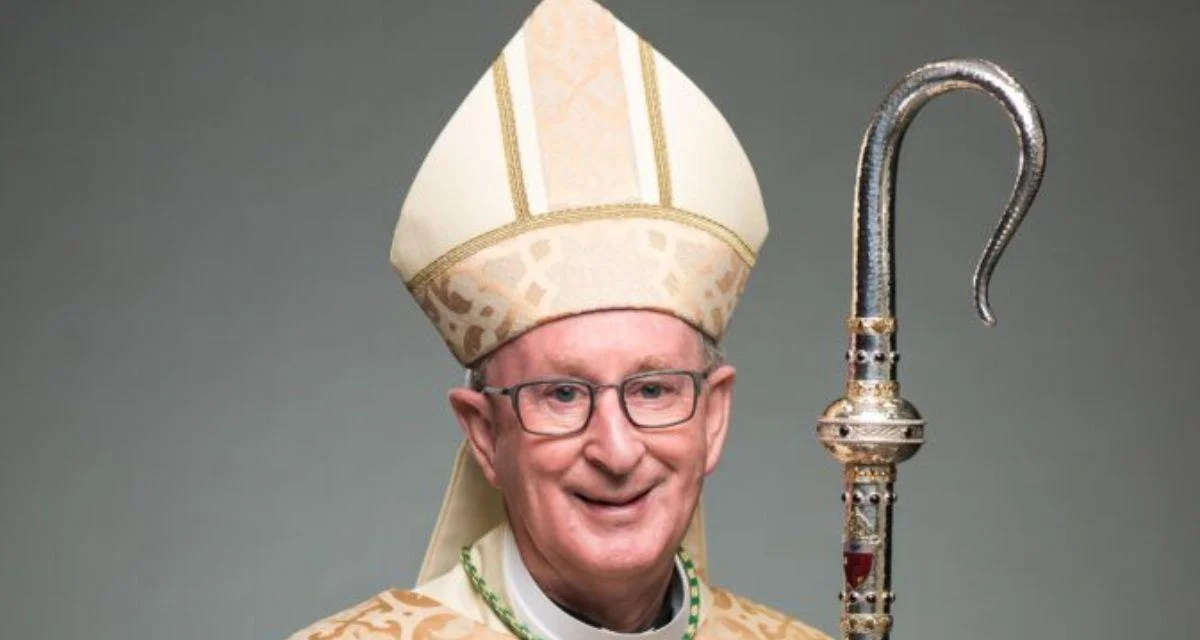
Reverend Joseph E. Kurtz, D.D. Bishop | Archdiocese of Louisville
By Michael Kelly, OSV News
BUENOS AIRES, Argentina — In his native Argentina, Pope Francis’ vision of “a poor church, for the poor” is a reality. “There is no choice,” according to Vincentian Father Fernando Sanchez Donati. “These people are poor, and their church is poor,” he told OSV News on a visit to one of Buenos Aires’ most challenging communities where poverty and drug abuse are prevalent.
“The missionaries and the pastoral workers live alongside the people; they share their lives,” said Father Sanchez Donati, who is national director of the Pontifical Mission Societies in Argentina.
In the nearby parish dedicated to Our Lady of Fatima, Marianist Father Andrés Tocalini shared that local people hold a memory of answered prayers. The area began to grow in the post-World War I era with an influx of immigrants, many from Portugal, where the Virgin Mary appeared to three shepherd children in Fatima in 1917.
The community long desired a church honoring Our Lady of Fatima in the neighborhood. However, hopes were dashed when President Juan Perón announced in 1954 that Villa Soldati had been designated as Buenos Aires' new red-light district for legal prostitution.
Father Tocalini recounted: “The community, spearheaded by the Portuguese migrants, prayed a novena to Our Lady of Fatima,” and “on the ninth day, the government overturned the decree without explanation.” According to Father Tocalini, it was seen as a miracle through the intercession of Our Lady of Fatima. Consequently, a shrine was built and dedicated to her protection.
The parish serves as the heart of the community. Across from it lies an education complex under Our Lady of Fatima's patronage. It accommodates around 3,000 students from kindergarten up to a trade school for teenagers. Pope Francis was particularly keen on establishing this trade school during his tenure as archbishop of Buenos Aires from 1998–2013.
“Cardinal (Jorge) Bergoglio did the groundbreaking ceremony here just four months before he was elected pope,” Father Tocalini told OSV News. He believed that establishing this trade school would transform the neighborhood’s economy.
Now hundreds of teenagers learn trades such as electrical work, computer repair, carpentry, and nursery teaching in an area traditionally plagued by educational disadvantage. According to Father Tocalini: “Ten years ago... they would leave and never look back,” but today many study locally and often return or commute after work.
Father Tocalini oversees a sprawling parish with approximately 41,000 residents. The parish also runs a soup kitchen feeding 350 families every weekday and 1,200 on Sundays. A significant focus is youth diversion programs aimed at preventing drug abuse among young people.
“Our priority is prevention,” said Father Tocalini. “We try to make sure kids don’t have time to consider drug use.” Activities include sports like soccer and volleyball along with music lessons and academic support.
Father Tocalini draws inspiration from Pope Francis’ vision of accompanying vulnerable populations: “To this day... one of my first confessions here was from a 15-year-old boy who prays daily not to become like his brothers because they are criminals.”
He remains humbled by local faith: “Faith here... is lived through what we call popular piety.” He emphasized how encountering people where they are aligns with Pope Francis’ vision for an outreach-oriented church.
Priests face significant challenges but find solace in serving these communities. Father Pedro Cannavó recalled initially crying himself to sleep due to overwhelming needs contrasted with limited resources.
However, he found strength in witnessing local faith: “If I go to sleep thinking about all that was left undone... I wouldn’t sleep.” Instead he focuses on daily blessings such as feeding families or helping youths avoid addiction through activities like soccer.
“My faith is a gift from those I serve,” concluded Father Cannavó.


 Alerts Sign-up
Alerts Sign-up